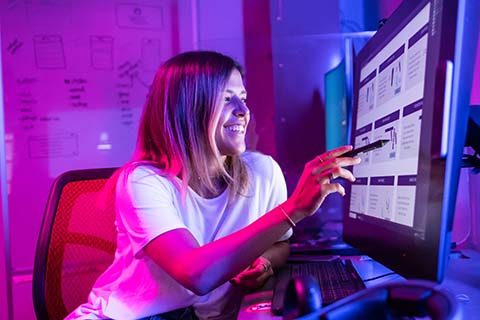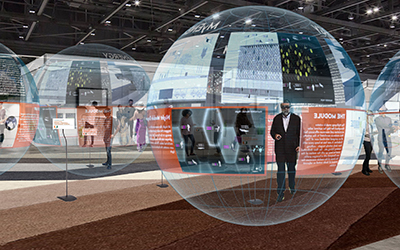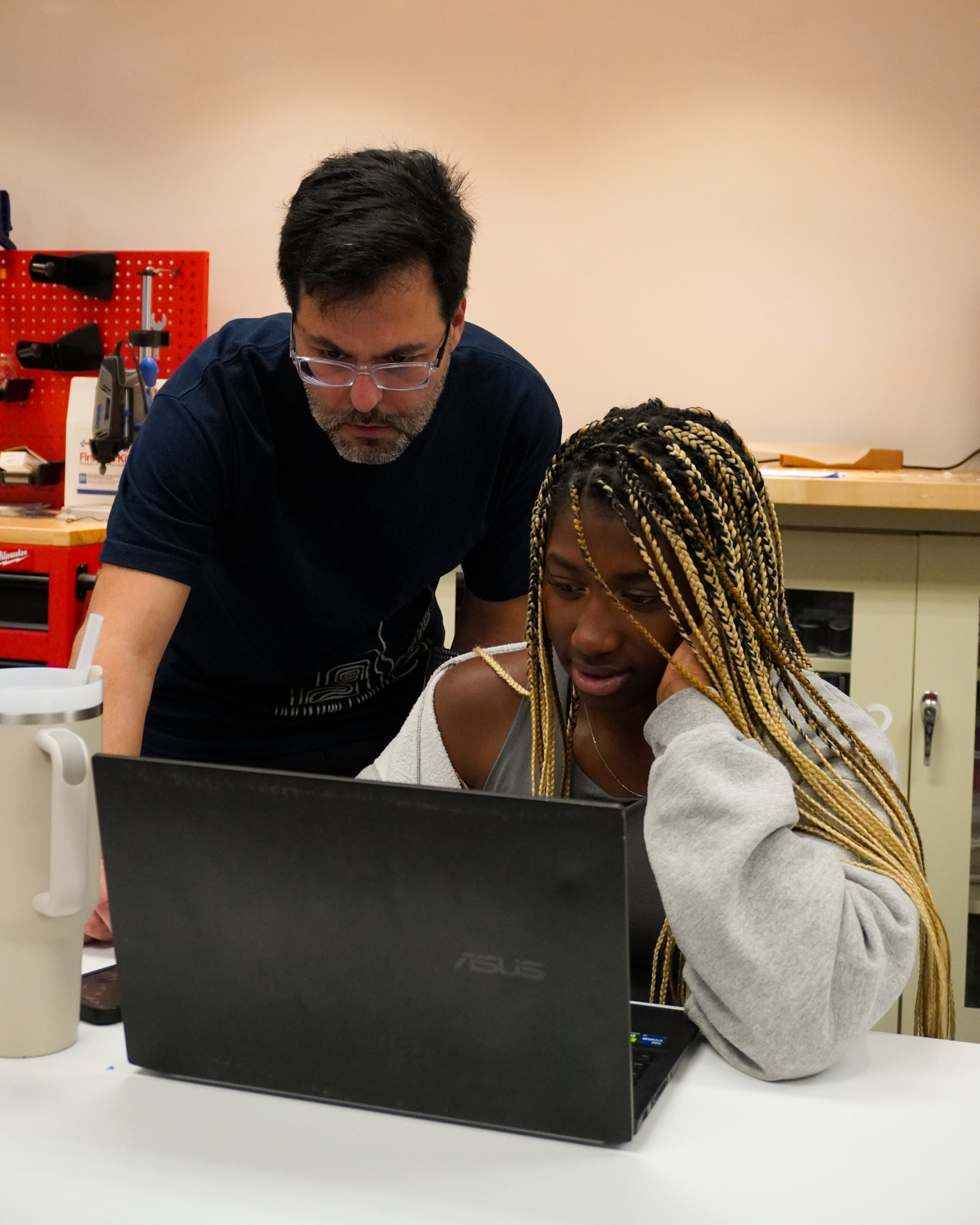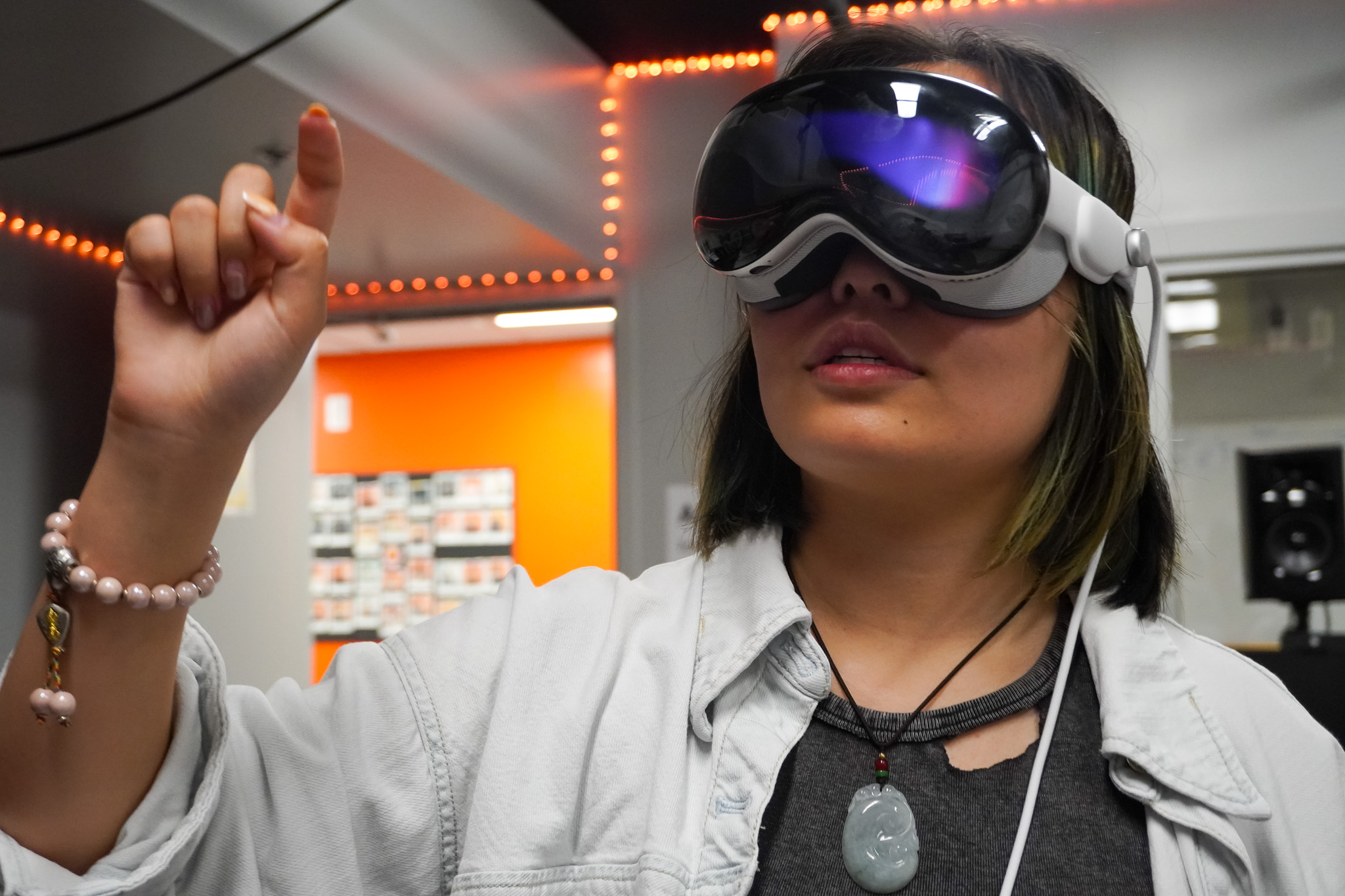Equipment and Technical Support
Primary Contact: Vanessa Rodriguez
The Creative Studio provides expert support and consultation in the use of digital media. The Creative Studio loans out Headsets as well as VR gear. It is also the best place to inquire about available XR resources around campus. Learn more about the Creative Studio here.
Learning with XR
Primary Contact: Gemma Henderson
The Virtual Reality Learning Initiative (VRLI) works closely with faculty members, students, and university stakeholders on projects related to teaching and learning, including labs, student technology support, instructional design, and learning platforms.
Previous XR projects have included leading faculty learning communities, hosting workshops, and partnering on course projects related to augmented reality, virtual reality, and spatial computing. To explore ways to meaningfully transform courses and teaching strategies that involve extended reality technologies, contact academictechnologies@miami.edu.
Learning and Research Labs
Primary Contact: Rudolph Bryson
 Located at the School of Communication, The VESL (Virtual Experiences Simulation Lab aka "the vessel") is a state-of-the-art studio space dedicated to the design and development of XR media.
Located at the School of Communication, The VESL (Virtual Experiences Simulation Lab aka "the vessel") is a state-of-the-art studio space dedicated to the design and development of XR media.
Specialized equipment is available for the development of games, spherical films, volumetric capture, photogrammetry, 3D scans, and more in addition to a suite of plug-and-play 6DoF VR gear ready for use.
Learning and Research Labs
Primary Contact: Indrit Alushani
 Located at the School of Architecture, RAD Lab provides resources and expertise for project-based research on the spatial ramifications of embedded technology, ubiquitous computing, and mixed-reality.
Located at the School of Architecture, RAD Lab provides resources and expertise for project-based research on the spatial ramifications of embedded technology, ubiquitous computing, and mixed-reality.
Computing is migrating from dedicated static appliances to mobile devices, mixed-reality headsets, objects of everyday life, and physical environments thanks to increasingly proliferating microchips and ever-expanding information networks. RAD-UM capitalizes on this potential, bringing research to bear on the built environment from a variety of fields that exploit the spatial consequences of distributed computing: responsive and interactive systems, mixed-reality, embedded/situated technology, ambient intelligence, mobile computing, and locative media. Visit radlab.arc.miami.edu.
App Development
Primary Contact: William Sun
The Library XR Community Lab serves as a space where students and faculty can engage in experiments and class demonstrations with virtual reality and augmented reality technology. It also serves as a central hub for students, faculty and staff members to borrow VR headsets, supporting the needs of VR Learning Initiative classes, and other educational activities across the campus.






 Located at the School of Communication, The VESL (Virtual Experiences Simulation Lab aka "the vessel") is a state-of-the-art studio space dedicated to the design and development of XR media.
Located at the School of Communication, The VESL (Virtual Experiences Simulation Lab aka "the vessel") is a state-of-the-art studio space dedicated to the design and development of XR media. 
